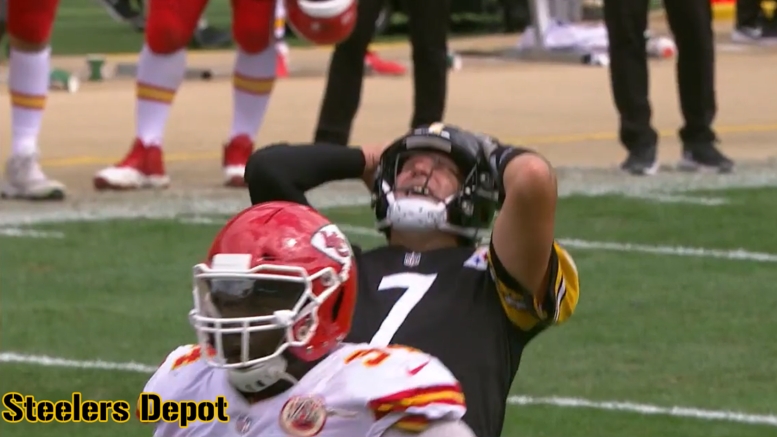Robert Klemko wrote an astoundingly insubstantial article recently for Monday Morning Quarterback in which he sourced quotes from two former teammates of Pittsburgh Steelers quarterback Ben Roethlisberger in order to present him as a player who was an issue for the team in the locker room.
One of the two players quoted, running back Isaac Redman, was very upset with the characterization of his remarks, and even outright stated in his quoted remarks that he did not think Roethlisberger was a problem. The former undrafted free agent, who was with the team from 2009 to 2013, said that he simply felt the quarterback kept more to himself.
The other running back was Joshua Harris, who spent one season with the team in 2014, primarily on the practice squad. He accused the quarterback of deliberately fumbling in the waning moments of a victory in order to protest a run call from the sideline, and said that it was at that moment he knew what type of person Roethlisberger was.
This is the same Joshua Harris who blamed his former college coaches as Wake Forest for going undrafted. Following the third round of the draft that year, he posted on Twitter that interest level in him was very high but that “slanderous remarks” from his coaches citing work ethic and locker room concerns forced teams to back away.
I wanted to go into this detail to lay in the foundation for the latest MMQB article, this written by Connor Orr, in which he paints Roethlisberger’s leadership in 2019 as being one of the “inevitable storylines born out of this year’s NFL free agency frenzy”.
The problem is not with the premise—it’s certainly valid to put the quarterback’s leadership under the microscope this season, given that he is a team captain and the locker room has had a lot of issues in recent years. That partly falls on him.
But Orr suggested that it will be more significant this year because, as he writes, “it’s the first time in his career that he’s been absent a strong veteran counterweight”. Antonio Brown’s departure certainly has noting to do with Roethlisberger’s leadership abilities. And he’s won the games Brown hasn’t played, anyway.
Throwing in the term “veteran” suggests that Orr is referring to something beyond the on-field performance, but I’m at a loss to figure out what sort of dynamic Brown brought to the table the absence of which would have a deleterious effect on Roethlisberger’s ability to lead a team.
If he simply meant to write that it might be harder to win games without arguably the best wide receiver in football, then he should have written that instead. But piggybacking this off of the Klemko piece from the previous day is a bad look.








